Project Management > Presentation > Lecture: Managing Project Teams. People In Projects (All)
Lecture: Managing Project Teams. People In Projects
Document Content and Description Below
Introduction to Business Management Module leader: Yannis Smirnis email: [email protected] Room: RV103DPeople in Project Effective teams Ineffective teams Multi-discip... line teams Project Leadership & Leadership styles The project manager’s Role Technical Experts vs. GeneralistsWhat is a team? A group or team has certain attributes that a random crowd does not possess: The members have a sense of identity: there are boundaries to the group which define it. Members are loyal to the group: they conform to the norms of behavior and attitude that bind the group together. Purpose and leadership: most groups have a purpose and a set of objectives.Purpose of Project Teams The project will almost certainly require a range of skills, which any one person is unlikely to have. A suggestion from one person can generate many ideas from others. Once a team has made a decision the team will commit to the course of action. Project teams help and enhance motivation. Team members support each other when they need help both technically and emotionally.Project Team Structuring Managing projects successfully poses particular “people issues” for project managers. Project managers need to be able to motivate groups to work well. Leadership skills are essential if the team is to work willingly towards the successful achievement of organisational goals.PROGECT MANAGER PROJECT TEAM STRUCTURE DESIGNER ACCOUNTANT ??? Transport person ENGINEER SECRETERY PlannerDeveloping Project Teams Burke (2003) defines a project team as: “a number of people who work closely together to achieve shared common goals” . It is part of the project manager’s job to pull together a team to ensure that the team works with a unity of purpose. Project managers need skills of planning, scheduling and controlling to run projects successfully. Projects fail when the project manager does not build a strong team.Advantages of Teams Combines talents and skills Involves wider perspectives (implementers, planners, managers) Motivates through shared goal Evaluates ideas Develops individuals Social contactTeam support each other Motivation good practice Better Sharing of good practice Minimise duplication of work Transfer of Information All members contribute Minimise impact of hierarchy Feedback Constant drive for new ideas The Advantages of Teams in Projects Efficient Peer Support Resource More Freedom Better Ideas Project BenefitsSuccessful teams Clear objective Shared responsibility Leadership Combination of skills and knowledgeSuccessful teams in Projects Range of skills which match the tasks within the project Project Leader who understands the strengths in the team and applies them effectively Team supports individuals Processes support objective Regular communication Range of views and opinions which stimulate new approaches to problemsWhy Teams Succeed ? Good spread of Mental Skills Spread of personalities that gave the team Balance. Appropriate management Style for the project Project leader gains respect from team members Innovative ideas by team members to solve problems and identify new markets1. Forming – group members are anxious, uncertain, lack trust. Group holds back –waits for leader to emerge Independence Forming Storming Norming Performing Adjourning Dependence/ interdependence Return to Independence 2. Storming – Individuals test leader subgroups emerge 3. Norming – Power struggles resolved Team spirit established 4. Performing – Co-operation, open communication, group cohesiveness, focused on solving problems tuckman’s Five-Stage Theory of Group Development (1977) 5. Adjourning – Team comes to end - work is donetuckman’s Five-Stage Theory of Group Development , (1977) Individual Issues Forming Storming Norming Performing ‘How do I fit in?’ ‘What’s my role here?’ ‘What do the others expect me to do?’ ‘How can I best perform my role?’ Group Issues ‘Why are we here?’ ‘Why are we fighting over who’s in charge and who does what?’ ‘Can we agree on roles and work as a team?’ ‘Can we do the job properly?Why Teams Fail Wrong size Communication breakdown Duplication of effort Tasks left incomplete Obscure objectives Personality clashes Run out of time Inadequate resources Fails to take advantage of Opportunities Unable to change with the timesProject Leadership “For project mangers to be successful and effective they must practice an appropriate style of leadership”“Leadership is about setting goals and objectives and generating enthusiasm and motivation amongst the project team, and stakeholders, to work towards those objectives.” Burke (2003) “Specific skills that contribute to effective and positive leadership are mostly based on good communication skills: effective listening and effective talking or writing” Field and Keller (1998)Managing is concerned with logic, structure, analysis and control. Leadership requires a different mindset and the leader has different tasks. These tasks include: Creating a sense of direction. Communicating the vision. Energising, inspiring motivating.Leadership is about setting: Goal’s Objectives Generating enthusiasm and motivation. Leadership is the process of influencing others to work (to the best of their capabilities) willingly towards a goal. Leadership and management are different. Project LeadershipManagers vs. Leadership Focus on tasks Focus on people Do things right Do the right things Plan Inspire Organize Influence Direct Motivate Control Shape entities Follows the rules Project LeadershipLEADERSHIP - Verbally describing leadership is difficult, you could use the following; Leading people by being empathic Influencing people by sincerity Commanding people, assertive Guiding people, by being trustworthy the project manager’s roleLeadership Styles Leadership styles can be seen as either autocratic or democratic. The style used will depend on the type of decision required. Other issues to take into account include the pressure at the time and the type of people you are working with.Types of Leadership Style Autocratic: Leader makes decisions without reference to anyone else High degree of dependency on the leader can create de-motivation and alienation of staff May be valuable in some types of business where decisions need to be made quickly and decisivelyTypes of Leadership Style cont… Democratic: Encourages decision making from different perspectives – leadership may be emphasised throughout the organisation Consultative: process of consultation before decisions are taken Persuasive: Leader takes decision and seeks to persuade others that the decision is correctTypes of Leadership Style cont… Laissez-Faire: ‘Let it be’ – the leadership responsibilities are shared by all Can be very useful in businesses where creative ideas are important Can be highly motivational, as people have control over their working life Can make coordination and decision making timeconsuming and lacking in overall direction Relies on good team work Relies on good interpersonal relationsTypes of Leadership Style cont… Paternalistic: Leader acts as a ‘father figure’ Paternalistic leader makes decision but may consult Believes in the need to support staffBut what leadership style should you use? What is most important is how the project manager uses his leadership style in any given situation The project manager may use all of the styles as different circumstance dictate. (motivate the teams/persons)Conclusion Projects pose particular problems of building and managing project teams. Project managers need to be able to motivate groups to work well. Selection of the project team is critical in obtaining the right balance of skills, experience and personalities. The issue of leadership, from the project manager, is a little more complex than ordinary management. The biggest problem here is motivating and keeping people when the project nears completion.Any Questions?? You should have all read through the assignment. If you do not understand anything on the assignment ask your workshop tutor. Remember Week 9, you have to show evidence at your workshop that you have started the assignment. Do not forget assignment hand in date. 27th January Assignment [Show More]
Last updated: 11 months ago
Preview 1 out of 31 pages

Reviews( 0 )
Document information
Connected school, study & course
About the document
Uploaded On
Dec 18, 2019
Number of pages
31
Written in
Additional information
This document has been written for:
Uploaded
Dec 18, 2019
Downloads
1
Views
96

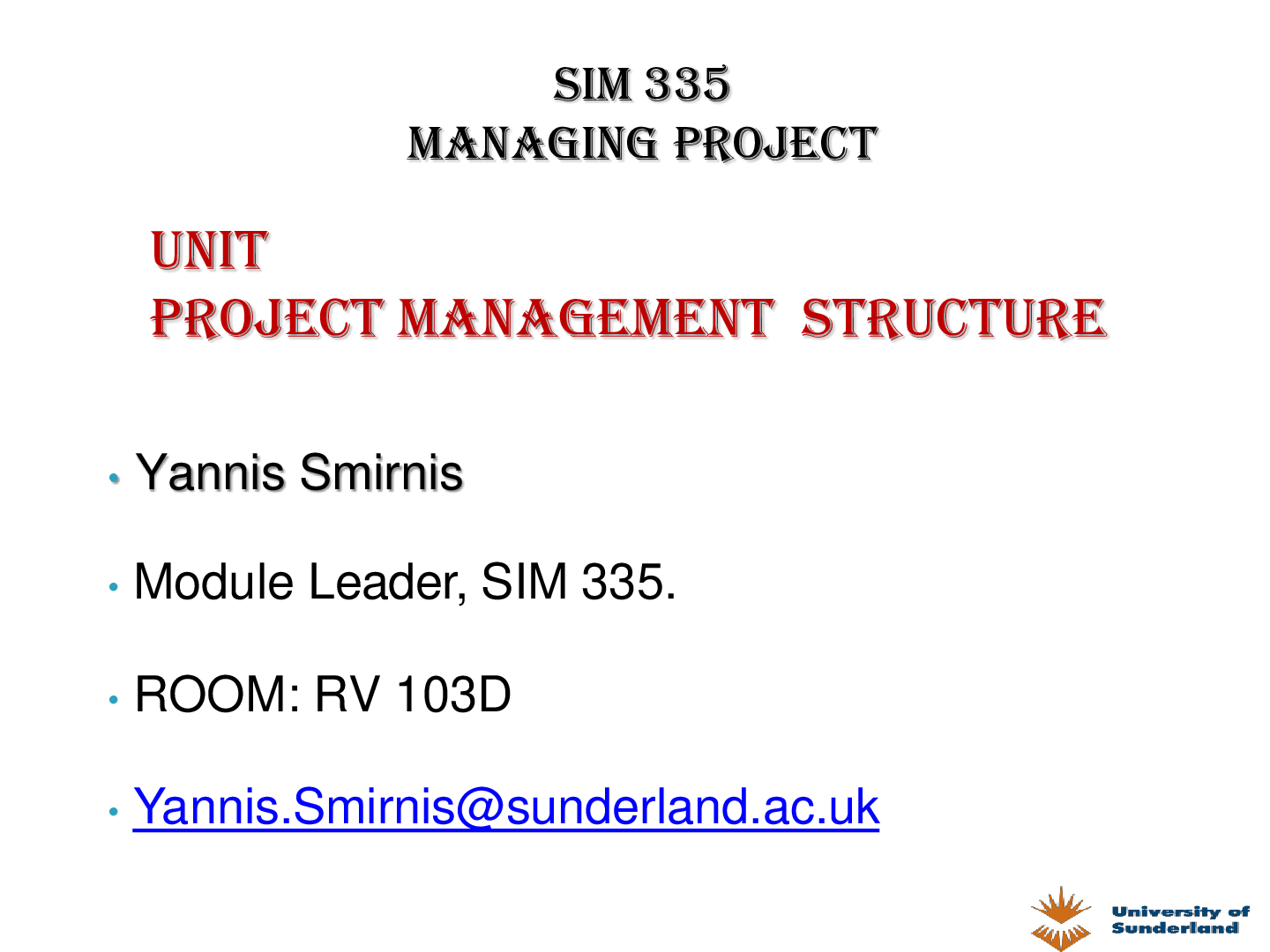

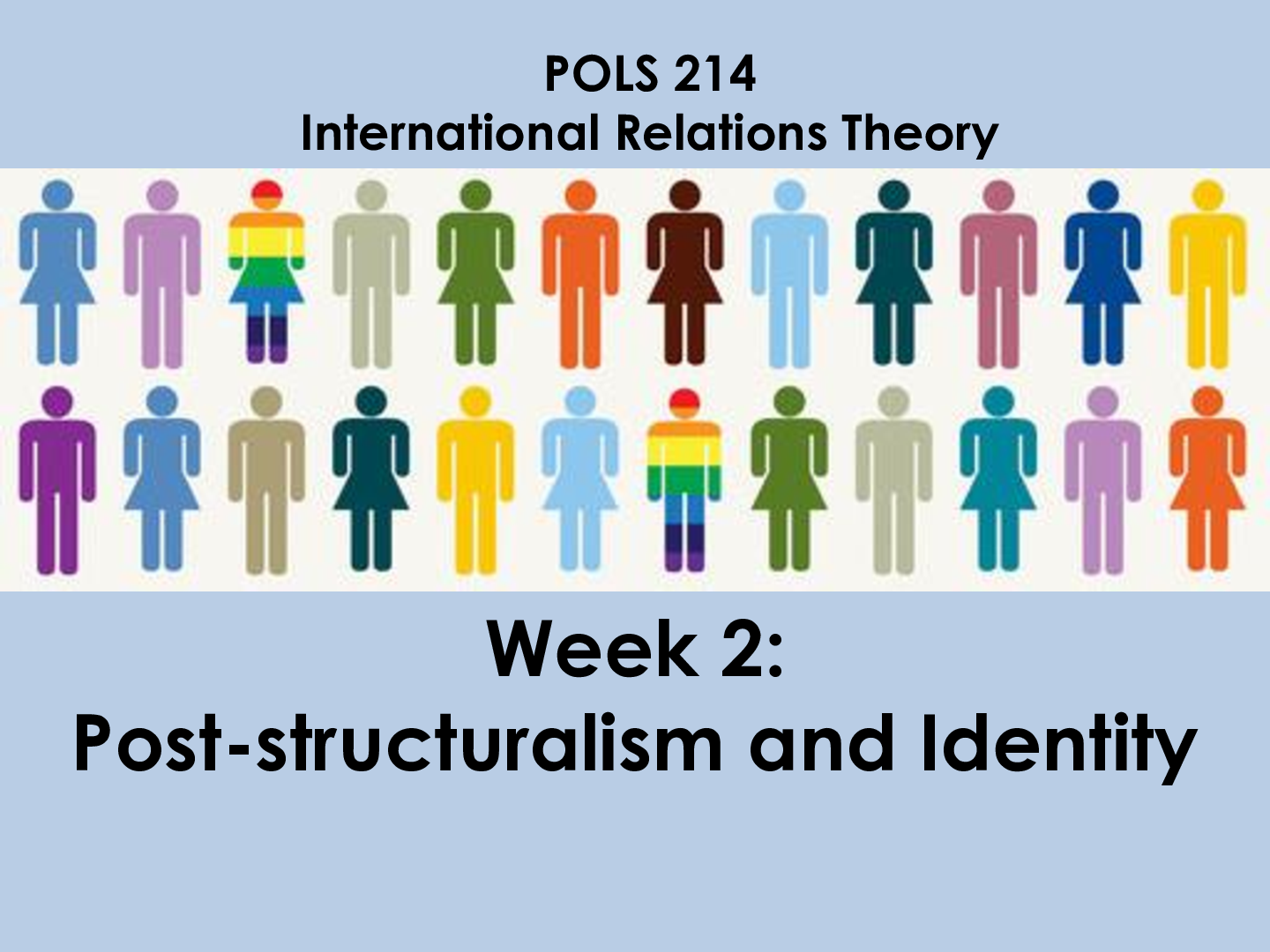

.png)











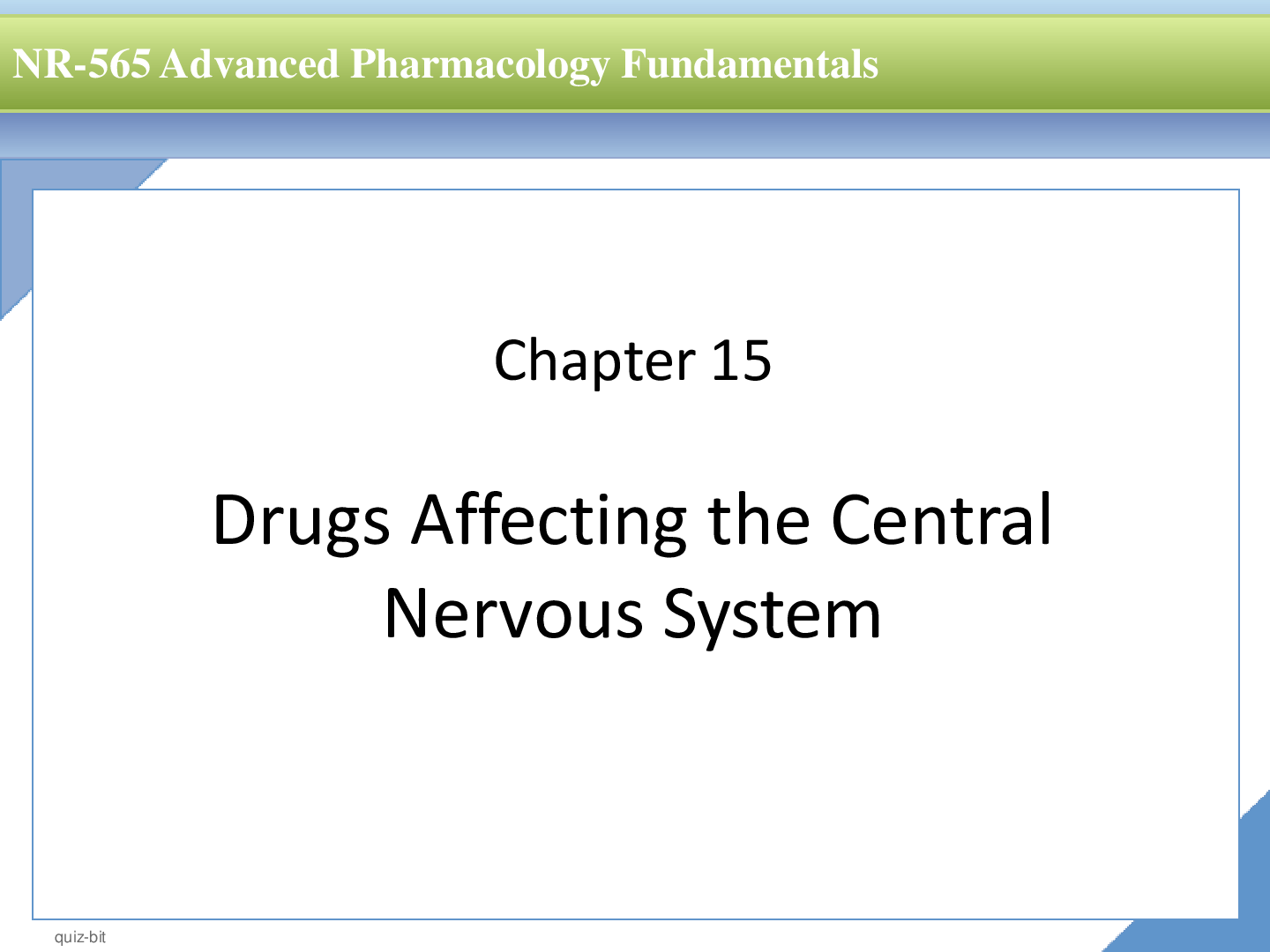





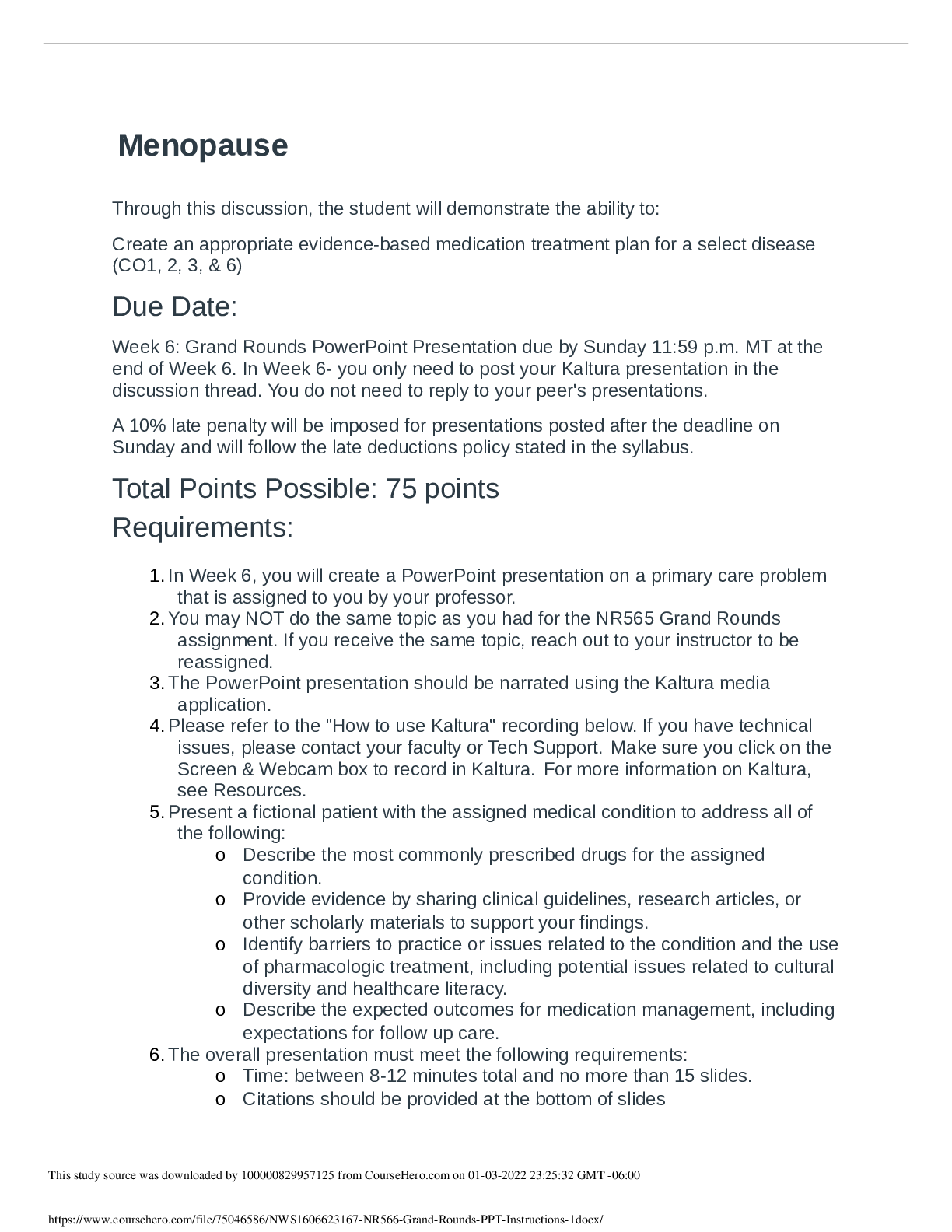
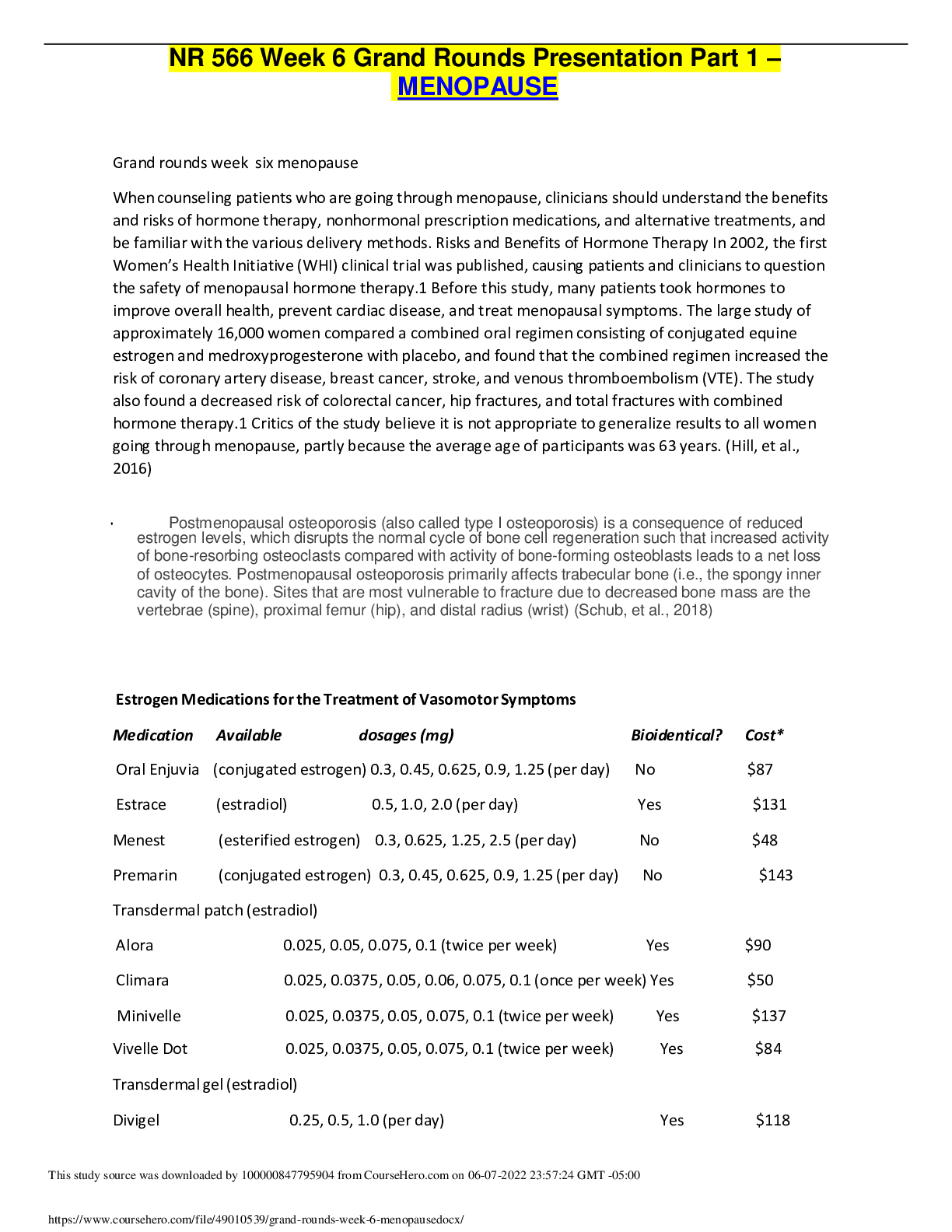


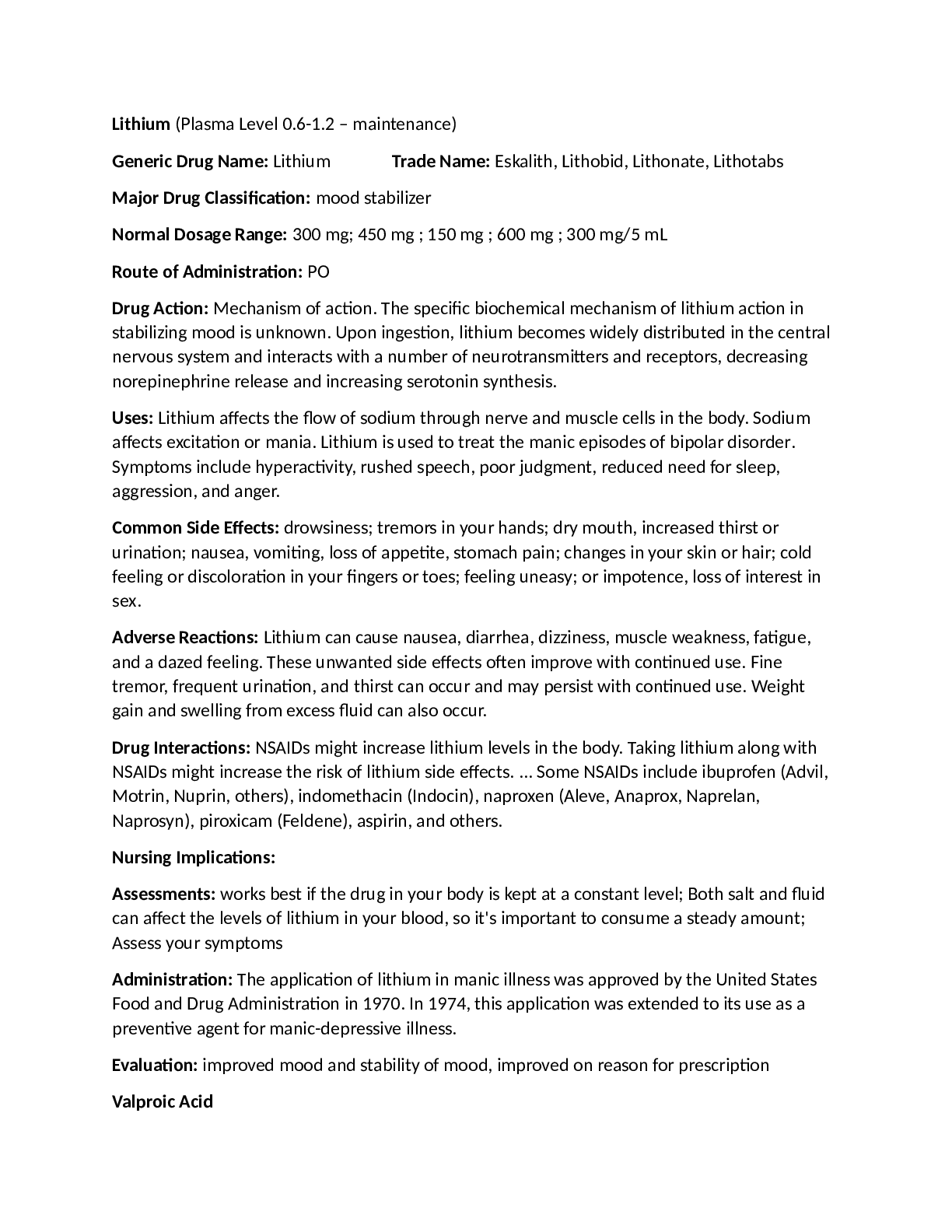
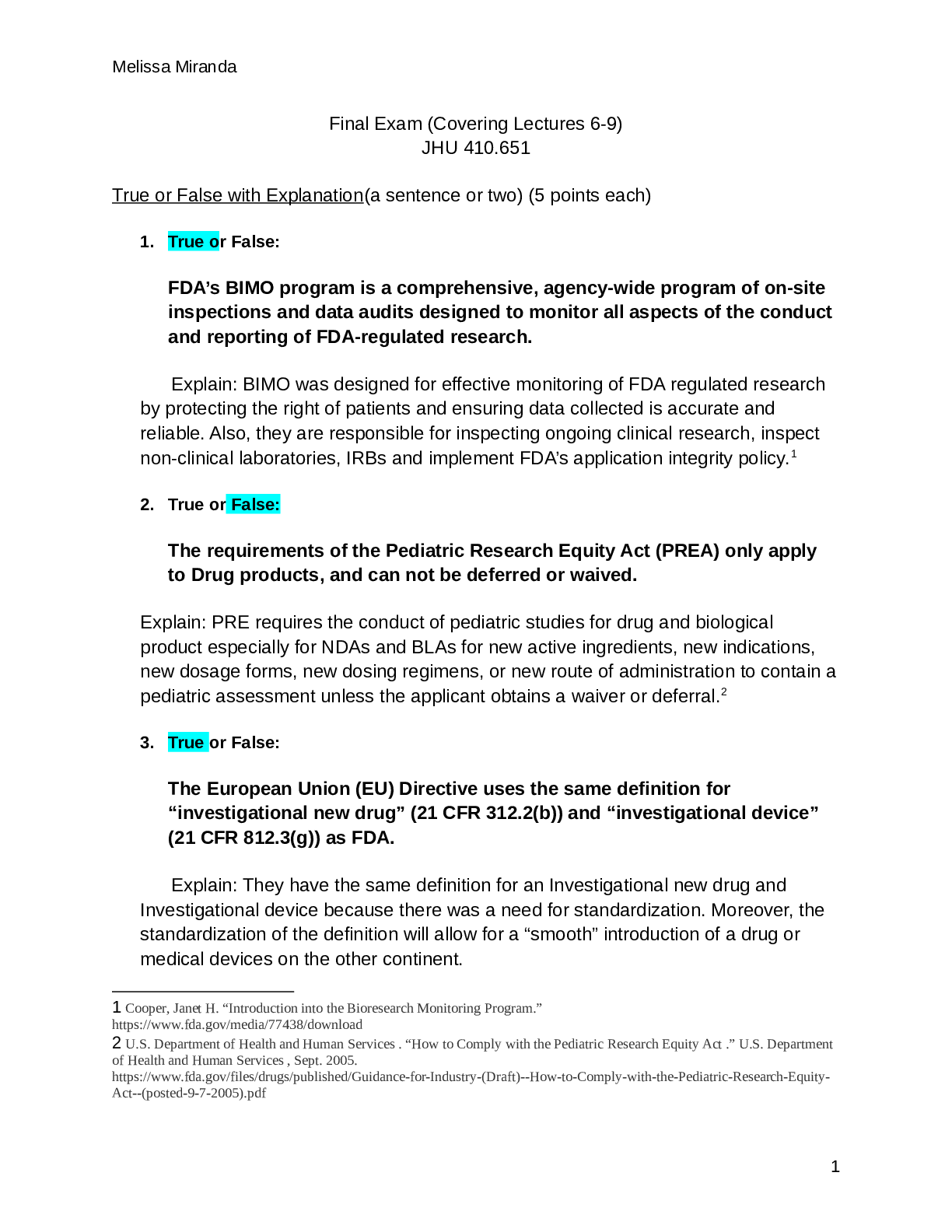
.png)
 (1).png)


